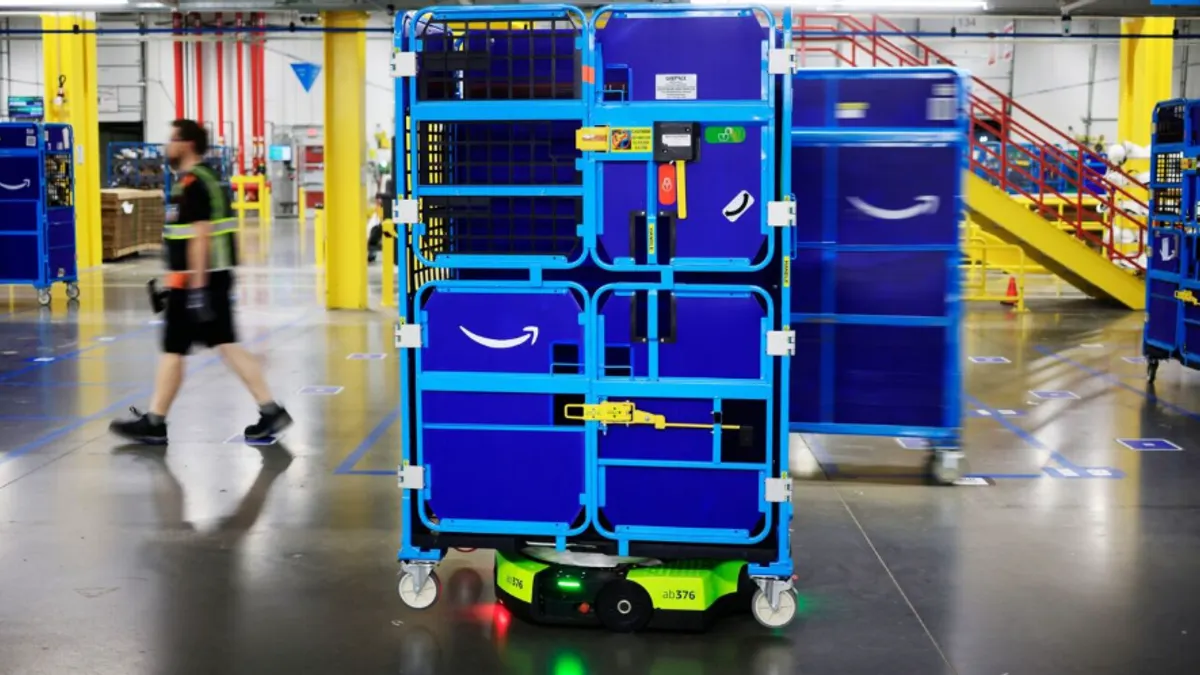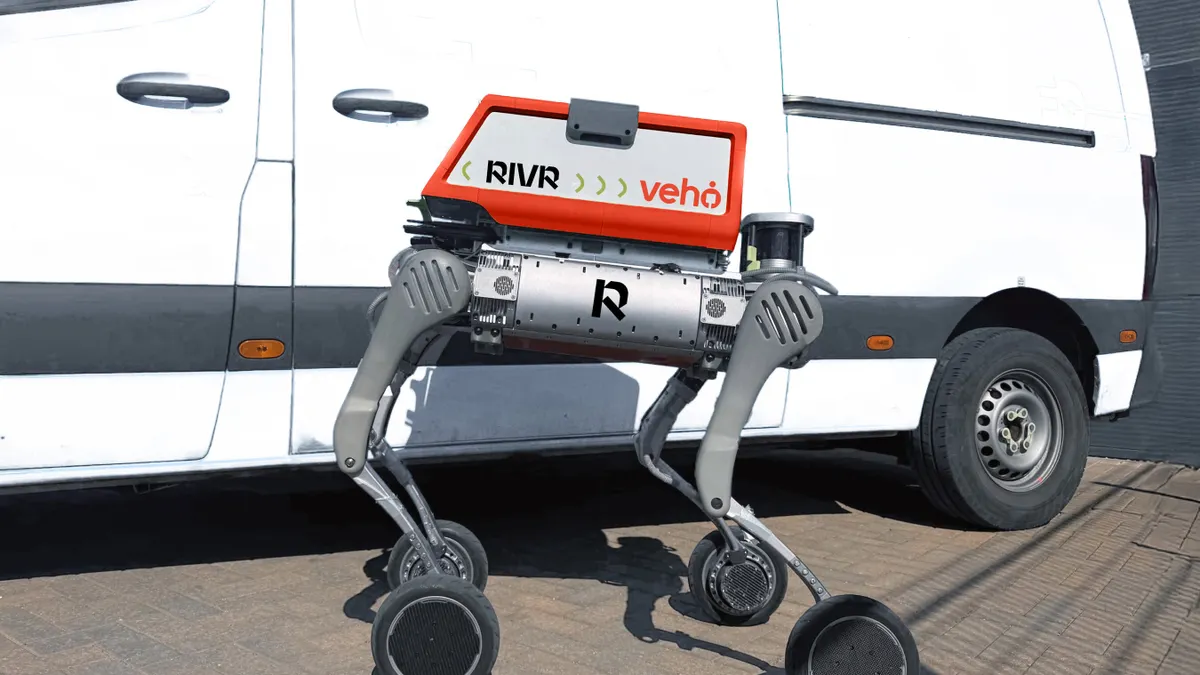After years in the making, the ELD mandate takes effect today, with big questions surrounding how it will disrupt and impact the industry.
Most of the larger carriers were early adopters of ELD, transitioning during the last year, ahead of the government-mandated schedule. They've already worked through the kinks and productivity issues.
Some larger carriers have changed to drop trailer programs or relays. This way, for example, they can divide up a 1,000-mile route. One driver drops the trailer at 500 miles and takes another trailer back to the origin point, and the other driver does the same.
This technique differentiates large fleets from small ones. A fleet with six trucks and trailers can't easily do a trailer drop.
Those in the exception freight and spot market may notice some hiccups, said Peggy Dorf, senior market analyst at DAT. These transportation needs are often handed by small fleets, who may have waited until the last minute to get their ELDs.
As of early November, about six weeks before the mandate's effective date, 60% of small fleets (those with up to 100 trucks) hadn't yet installed ELDs. For those with five or fewer trucks, 93% hadn't yet adopted the devices.
Anticipating problems for smaller fleets
L&A Transport is one of the smaller fleets just now ramping up its device usage. The company got its devices two weeks ago. It waited because it wasn’t ready to take the plunge.
Not only were the devices expensive, at several thousand per truck plus ongoing monthly fees, but "every week someone else was coming up with new features," said Elliot Ballen, operations manager for L&A Transport. His company operates a fleet of 19 trucks affected by the mandate.
As a company that does a lot of pier work, Ballen said, "I'm concerned about the drivers getting held up some place while unloading," and then needing to take their 10-hour break.
Before the ELD mandate, drivers couldn't legally leave the pier, but they would pull around the corner. Ballen said the shippers don't always realize that drivers lose time just sitting at the loading dock.
"Whether you're driving, having lunch or sitting at a stop, it's all part of the 14 hours," he said.
Training the drivers is very detail-specific
In terms of daily operations, many drivers are finding the ELD inconvenient.
"What a lot of guys like to do is start a little early, get coffee and something to eat. You can't do that anymore," Ballen said. “The clock is ticking. If they're parked for their 10-hour break and want to get something to eat, now they may have to walk or call Uber. While they weren't legally allowed to drive their trucks a mile or two for meals, they did it anyway, because it was a short distance. Now they're being tracked.”
Ballen said L&A Transport has been working with drivers to give them the needed support, including phone numbers to call if there's a problem.
Whether you're driving, having lunch or sitting at a stop, it's all part of the 14 hours.

Elliot Ballen
Operations Manager at L&A Transport
One driver learned how his ELD worked the hard way, by not turning it off at night.
"It showed he worked 168 hours straight," Ballen said. "He parked his truck, but didn't log out or turn off the ELD."
Drivers will also need to adjust to the accuracy of an electronic device. Paper log books are broken down into 30-minute increments.
"If you start at 25 minutes after, you mark down half-past," Ballen said. But the ELD is precise to the minute.
One driver using the electronic log for the first time, took a 29-minute lunch break, according to the device. According to the driver's watch, it was 30 minutes. That's technically a violation, because it's a minute under the required break. "Those are the things you have to get used to," Ballen said.
Shippers will need to adjust
Ballen is also having conversations with shippers about the change.
"Most shippers don't realize that the time you back in to their dock counts as working," he said.
With the new mandate in place, shippers may need to revise their stock and yard practices to accommodate truckers. While there haven't been any big cases of shippers coercing drivers to violate the FMCSA, there's a danger it could happen, said Dorf.
On the plus side, "shippers who are more accommodating to drivers will probably get better rates," she said. "The carriers price accordingly, and word gets around."
Anecdotally, Dorf heard about some shippers enabling drivers to make better use of their hours when on their premises. That includes better communication when they enter, so the shipper knows the drivers' status when in the yard.
"The shipper can get advantages of being a shipper of choice," she said.
The ELD levels the playing field
There are plenty of gripes about the ELD, but there are benefits too. Ballen appreciates that truckers won't be driving 16-plus hours.
"Some drivers do that, and it's dangerous," he said. Plus, tracking the hours electronically levels the playing field.
"We've been following the law, and it's hard to compete with those who don't. It's like competing against someone who doesn't pay taxes," he said.
Companies who say they can deliver in less time do so, because they're illegally driving longer hours.
Shippers who are more accommodating to drivers will probably get better rates.

Peggy Dorf
Senior market analyst at DAT
With the devices, carriers can track the drivers, making sure they're staying on route, and saving fuel and money along the way. Sometimes drivers think they're taking a shorter, more efficient route, but they may find better routes using the ELD.
Some of the devices have routing software with alerts, which can save time and fuel.
"They keep adding more features, because there's so much competition," Ballen said.
The electronic logs also report driver speeds and hard braking.
"That's a dangerous thing, and we can get rid of the unsafe drivers or re-train them, which is positive," Ballen said. "This should make the roads better for the general public."
Could the ELD raise fees?
Certain categories of freight will have price increases for shippers in the next procurement cycle, said Dorf.
"They'll realize there are certain runs they can't do in one or two days," she said.
That includes borderline haul lengths, like 500-mile round trips or 250 miles in a single day.
"There's no give in the schedule. If they can't unload fast enough, he can't move his truck," Dorf said.
Dorf estimates that carriers vary on how they absorb the cost. Smaller fleets can expect a 4 to 5% productivity loss depending on the haul length, she said.
This should make the roads better for the general public.

Elliot Ballen
Operations Manager at L&A Transport
The larger carriers have already gone through this process and made necessary adjustments. Larger carriers may also have ways to accommodate that loss, so they don't pass it along as a freight cost increase.
In other cases, though, costs could go up, as drivers are paid by the mile. They'll want to accommodate drivers, so they don't get a pay cut if driving fewer miles per day.
The ELD will accelerate trucking audits
The interstate hours of service rules are the same.
"The law hasn't changed. The recording of it has," said Ballen. "I'm sure within a couple of years, the government will request ELD downloads."
In a trucking company audit, the government checks logs, toll and fuel receipts and PC*Miler.
"Now they can ask for download and within 30 seconds, they can check what used to take them hours,” he said.
While the ELD mandate takes effect on December 18, the enforcement and penalty phases are postponed until April 1, 2018. Still, if a driver doesn't have an ELD when pulled over, the official can issue a warning or a fine.
Until April 1, drivers won't get points against their compliance, safety and accountability score (CSA). They also won't be parked, the two areas of most concern to carriers, said Dorf.
I'm sure within a couple of years, the government will request ELD downloads.

Elliot Ballen
Operations Manager at L&A Transport
Still, not all truckers are expected to comply by today.
"Some owner-operators are reluctant to take on the e-log, and are hoping they don't get caught," she said. "But they're taking their chances. If they get caught, they can get fined every time they're pulled over."
"The law itself isn't bad, and it makes sense," Ballen said. "We're concerned about fines and violations. It's scary going from paper to computer."





















